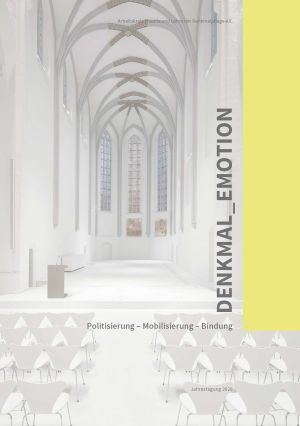Zitationsvorschlag
Veröffentlicht
Rückwärtsgewandte Utopien
Rechtspopulismus und Erbe
A characteristic feature of the various right-wing populist movements that have been gaining influence in parts of the West in recent years is their constant recourse to an idealized past: to a nostalgic vision of a lost or threatened golden age which the “people” must fight to defend or restore. This makes populism an issue of critical concern for the field of heritage conservation, for this vision can be seen to draw both directly and indirectly on concepts of cultural heritage and to deploy them for political ends. It is not only the characteristics and qualities of historic artefacts, buildings, places and customs that are evoked, but also the emotions that people associate with them: attachment and pride, but also fear and anger, specifically toward those thought responsible for what are perceived to be the deficiencies and injustices of the present. Indeed, it is the very emotionality of heritage that makes it such a useful instrument for consolidating right-wing positions and mobilizing adherents to action. Yet the role of heritage in populism remains underresearched. The article presents some initial findings which suggest that heritage is in fact fundamental to right-wing populism understood as a strategy and a style of communication. At the same time, it is argued that populism is non-dialogical and therefore essentially non-political, and that its cooptation of heritage is therefore damaging to the latter’s ability to function as a site for the negotiation and peaceful contestation of cultural and societal values.








